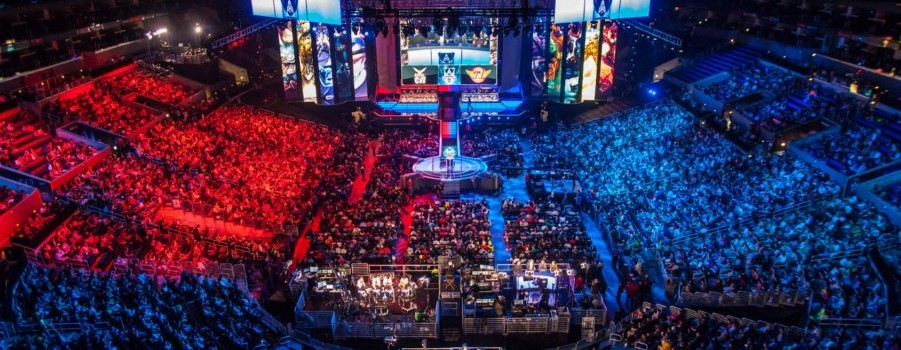October 19, 2014, Seoul World Cup Stadium, Korea. Forty-five thousand fans cram into the stadium, while a total of 27 million people viewed the event online, streamed through 40 different broadcasters in nineteen languages. All these people were there for one thing: to watch South Korean team Samsung Galaxy White take on Chinese team Star Horn Royal Club in the League of Legends World Championship.
All these people cheered and screamed as they watched Samsung Galaxy White claim victory in an online video game, walking away with a cool million dollars in prize money and an elevated level of fame.
It’s fair to say that esports have become a pretty huge thing, going from stride to stride over the last several years. Despite the huge fan bases and communities dedicated to these games, esports still can be a bit of an unknown in mainstream society.

With the word ‘esports’ now officially in the dictionary and games broadcast on ESPN, esports is gaining more traction every day. Even here in Australia, League of Legends developer, Riot Games, are carving a new path for esports and professional gaming careers with the ever growing Oceanic Pro League. Drawing together thousands of players and viewers alike from all over the Oceanic region, it’s setting a new standard for local competition.
But what actually is esports? At a base level it’s any sort of competitive electronic play, but generally the word is reserved for organised competitions at any level from amateur to pro and world stage levels. There are also a range of different games that come under the banner of esports, as well as genres. While there are a few outliers like World of Tanks and Hearthstone, majority of the most popular titles and leagues fall into five main categories.
- Mobile Online Battle Arenas (MOBAs) like League of Legends or DotA2
- First Person Shooters like Counter Strike, Halo or Call of Duty
- Real Time Strategy games like Starcraft
- Fighting games like Street Fighter and Super Smash Bros.
- Sports games like Fifa and Rocket League

The origins of this sort of competitive play trace back to the 1980’s when the first Space Invaders tournament was held. This trend gained traction over the course of the 90’s and even early 2000’s, with ‘LAN’ tournaments and locally organised competitive events becoming an integral part of the gaming community. Organisations and publishers alike developed and grew with the growing popularity, cementing these events even as internet connection began to be readily used with games, taking them online.
The Korean Esports Association (KeSPA), was first founded in 2000 and led to the huge boom of esports we see there today. Standing as one of the capitals of competitive gaming, Korea saw a massive increase in the number of people playing these games due to the growth of the internet and internet gaming cafes, which led to heavy investment of money and time into the development of the scene.
But what about Australian esports? Where are they now and what challenges do they face? Read on in Part 2.



